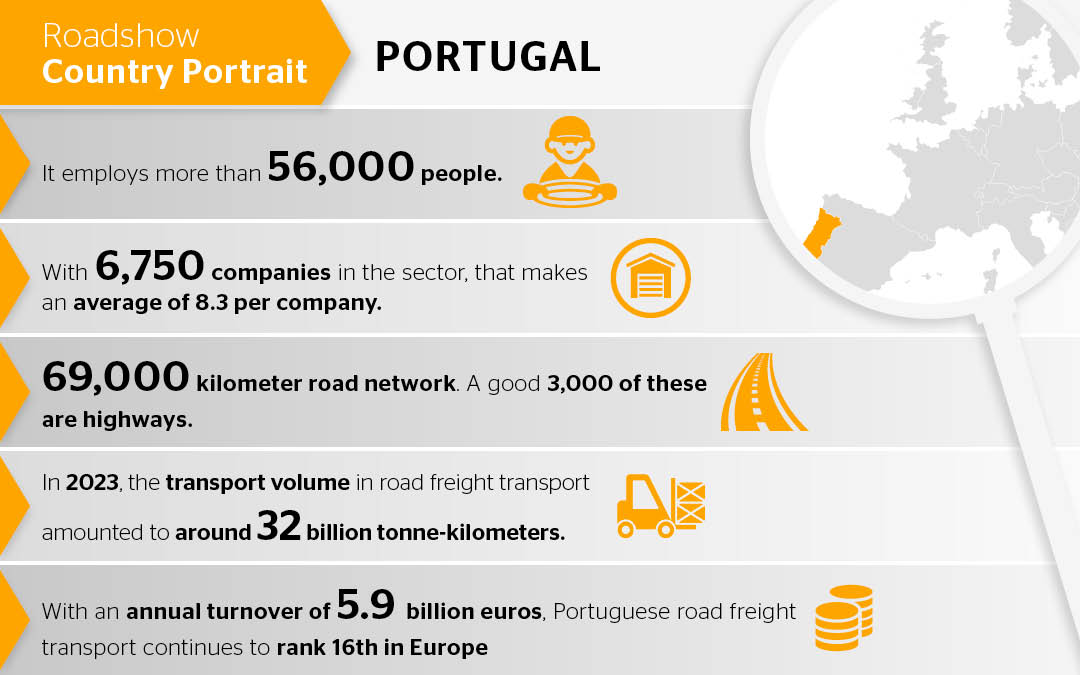Have you loaded your first freight to Portugal and are curious to see what awaits you there? Relax! Thanks to well-developed roads and little traffic, you can take it easy on your tour.
Portugal’s well-developed infrastructure has an excellent 69,000-kilometre road network. A good 3,000 of these are highways, making the country the one with the fourth largest highway network in Europe. There is rarely a lot of traffic, especially on the well-developed toll highways – because there are relatively few vehicles on the road in the country overall and because the national and federal roads are often a very good free alternative – even if they are sometimes a little bumpy. In addition, public transport in Portugal is cheap, easy and very efficient, making it the first choice for many people.
But beware: On Saturdays from 3 p.m. to 10 p.m. and on Sundays and public holidays from 7 a.m. to midnight, there is a general driving ban on national roads and highways for trucks and vehicles with trailers.
The speed limit on freeways is 120 km/h, in urban areas the limit is usually 50 km/h and 90 km/h outside built-up areas.
Strong industry in Portugal
Good conditions for a flourishing industry: in 2023, the transport volume in road freight transport amounted to around 32 billion tonne-kilometres. With an annual turnover of 5.9 billion euros, Portuguese road freight transport continues to rank 16th in Europe (out of 27 EU countries) and is the country’s twelfth-largest sector. It employs more than 56,000 people. With 6,750 companies in the sector, that makes an average of 8.3 per company. The market is correspondingly small: there is no company with a market share of more than five percent.
Good business with wine and cork
Foreign trade plays a decisive role in the Portuguese economy: the most important export goods include textiles and clothing, shoes, cork products, machinery and equipment, automotive parts, metal goods, chemical products as well as wine and olive oil. On the other hand, raw materials such as crude oil and natural gas, machinery and equipment, vehicles, chemical products, electronics and food are the most important imports.
And how was your first tour of Portugal? Tell us in a comment!


0 Comments